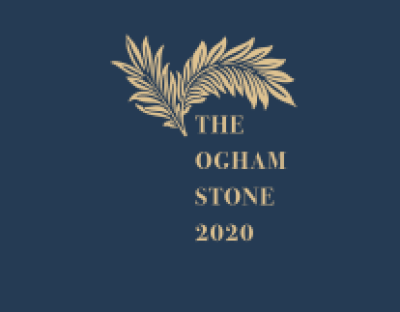Sandrine is a graduate of the MA in English here at the University of Limerick (UL). She is currently completing her PHD studies at the School of English, Irish and Communication here at UL. Her current research focuses on contemporary African literature. Sandrine describes how the MA in English has helped her develop her writing, research and analytical skills.
What made you study at UL?
I had previously completed my undergraduate degree in UL where I studied the Bachelor of Arts in English and History. I was already familiar with the lecturers in the English department where I had received great support and encouragement about my interest in the MA course. I was fortunate to be in UL as I knew that I would have a great support system that would help me further enhance my research skills and continuously explore my love for Contemporary African Literature.
What did you learn on the course?
The year-long MA taught me invaluable skills that have helped shape the type of researcher that I am today. Firstly, I got to learn the importance of research skills. I was able to apply these research skills when I was engaging with theoretical frameworks. Throughout the year I learned the importance of enhancing my writing skills using critical reflections. My supervisor encouraged me to continuously work on my writing through acts such as weekly critical reflections which strengthened my writing and helped me establish a voice in my field of research.
What is unique about the programme?
The MA in English provides students with the opportunity to solely pick modules that match their interests. As an example, my main area of interest is World literature, especially Contemporary African Literature. I was able to pick modules that all had features of World literature. Another unique feature of the MA was the flexibility of the course. This flexibility allowed me the opportunity to obtain a part-time job throughout the year. Lastly, the course offered a module on research methods where students had the opportunity to discuss the progression of their research and learn new skills that would become valuable when writing the thesis.
The MA in English provides students with the opportunity to solely pick modules that match their interests.
Can you take us through a typical week on the MA programme?
During a typical week, I had classes from Monday – Wednesday. I had four modules per semester. Typically, the module’s time ranged from two to three-hour sessions. Within these allocated class times it was split into two sessions. There was a combination of lecturing and tutorial work where the students were advised to partake in group discussions and presentations. The flexibility of the course allowed time to continuously work on your thesis work throughout the year. As opposed to such course elements with everything being separate and having to wait until the summer months before you can even begin researching.
Can you tell us about your own personal experience of the course, the benefits/challenges etc?
I benefited greatly from undertaking the MA in English as it prepared me for my current PhD. My ongoing engagement with Post-colonial studies and Contemporary African Literature further cemented my interest in the representation of the African character. The modules that I undertook during my time in the MA enhanced my understanding of my cultural background and continuously sparked my interest in Contemporary African Literature.
I benefited greatly from undertaking the MA in English as it prepared me for my current PhD.
Can you describe what it was like working on “The Ogham Stone”student literary journal as part of your studies on the MA programme?
Working on “The Ogham Stone” was an extraordinary experience. It was my time first to work on a literary journal as I only had experience in academic writing. We worked on the literary journal for the year. The group of students were diverse with a mixture of students from the MA in English and MA in Creative writing. Each student’s ideas and contributions were acknowledged whether it be when reading the submissions or having an insight into the creative elements of the journal. I was able to see first-hand the work and dedication that goes into creating a literary journal.
Would you recommend the MA to others?
Yes, I would recommend the MA to people who have a great passion for English literature. The MA provides a range of different modules that cater to everyone’s needs. The multifaceted approach to module content and a close lecture -student engagement made the course more enjoyable. UL has provided me with a base to further explore my research.
Yes, I would recommend the MA to people who have a great passion for English literature. The MA provides a range of different modules that cater to everyone’s needs.
What have you done post-graduation?
The MA paved way for me to explore my own vested interest in African Literature. I recently graduated in January 2020. I am currently in my first year of my PhD which focuses on Contemporary African Cultural Texts. UL has provided me with a base to further explore my research through MA modules which explored contemporary African literature and relatable topics pertaining to my ongoing research at PhD level.
For further information on the Masters in English at the University of Limerick and to apply, please click here.

